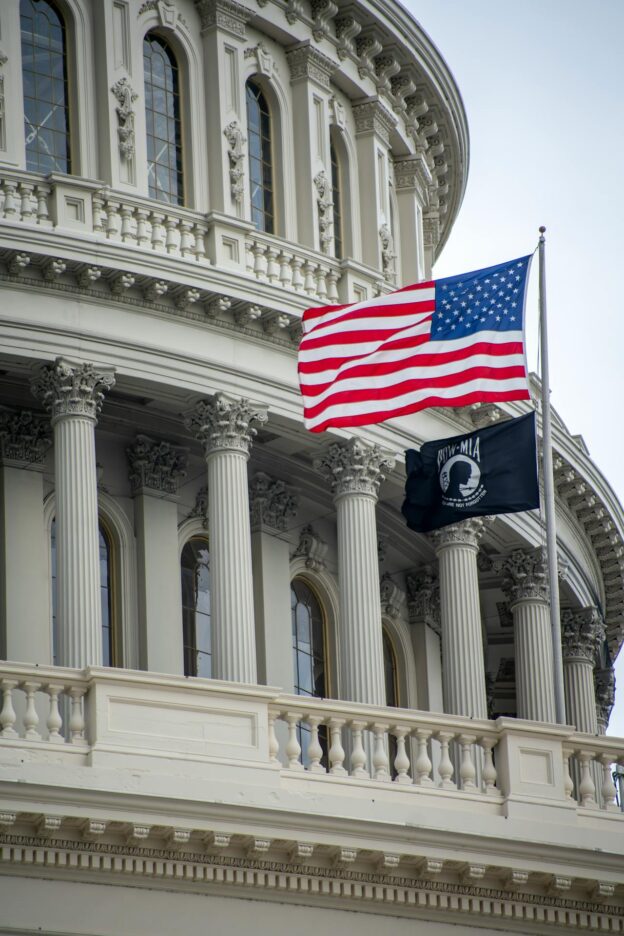By Lizzie Wills, Senior Partner & Head of Private Equity
A bill making its way through the US Congress could present meaningful new taxes on US holdings of investors domiciled in the UK, as well as several EU member countries – another in a series of new risks to emerge from the newly fraught relationship between America and its historic allies. While passage of the bill is not guaranteed, potentially impacted parties should begin to think now about how to react to potential changes.
The effort in the US Congress to impose new taxes on many foreign investments in the US is part of a broader tax and spending package that recently passed the US House of Representatives and is currently being debated in the Senate. The bill would be passed under a legislative vehicle known as reconciliation, which allows a bill to pass under restricted circumstances with simple majorities of both the House and Senate, circumventing the usual requirement to secure 60 Senate votes.
The foreign investment tax package is known as Section 899 for the new section of the US tax code required to implement it. Section 899 would impose incremental taxes above current rates on the value of income or sale proceeds of many US holdings (US Treasury securities would be exempt) held by institutional investors, individuals and governments domiciled in countries that have imposed what the bill characterises as “discriminatory” taxes on the US. The discriminatory threshold would automatically include countries that have levied Digital Service Taxes (DSTs) on US-based technology firms – which includes the UK, France and Spain – as well as taxes imposed under the Undertaxed Profits Rule, a standard developed by the Organisation for Economic Co-operation and Development (OECD) to attempt to impose minimum tax rates on multinationals.
Since the House version of the reconciliation bill passed on 22 May 22, critics have dubbed Section 899 the “revenge tax”, predicting that if passed the provisions would hurt US asset prices, cause interest rates to rise and the US dollar to tank considering the US$30 trillion in US assets held by foreigners. The Tax Foundation, a US think tank, estimates the new taxes would impact some 80% of the foreign direct investments into the US. Yet US policymakers appear to be largely unmoved thus far by the opposition. The Senate Finance Committee has released draft language pegging the incremental taxes at 15% (5% per year for each of three years) starting in 2027, watering down the House version but keeping it largely intact. The notion of raising taxes on foreign investors is completely consistent with the “America First” mindset of the Trump administration and Republican congressional leaders. The Congressional Budget Office (CBO), a non-partisan body that estimates the fiscal impact of proposed legislation, has forecast that the House version of Section 899 would raise US$116 billion over the 10-year budget forecast window, important considering the CBO’s forecast that the bill would add trillions to the already yawning US budget deficit. The Senate’s version of the bill would raise less, given the 15% maximum (versus 20% in the House bill) but would still be expected to generate meaningful revenue.
The broader reconciliation bill has drawn opposition from multiple factions of the Republican party. However, the bulk of the criticism has focused more on the bill’s proposed cuts to the Medicaid health-insurance programme (for moderates) and the projected further widening of the federal budget deficit (for conservatives). By comparison, criticism of Section 899 has been muted. And even if the current version of the bill is scaled back, the temptation for a party that controls the White House, Senate and House to pass a bill through reconciliation is huge – the vehicle was used to pass the tax-reform bill in Trump’s first term, in 2017, as well as the Inflation Reduction Act (IRA) under President Joe Biden in 2021.
Sample countries that have imposed Digital Service Taxes (DSTs) on US Firms
| Austria | Denmark | Belgium |
| Canada | Hungary | Turkey |
| France | Italy | Peru |
| India | Poland | Colombia |
| UK | Spain | Kenya |
Source: Tax Foundation
What can non-US investors with US holdings do in response? Both the Senate and House versions of the bill specify that the new taxes will only be imposed on entities with greater than 50% equity ownership outside the US. Jointly held funds with divided US/non US ownership could shift majority control back to the US partner. Other strategies will surely emerge to adapt to the new rules should they come to pass. But investors would do well to start thinking about them sooner rather than later.
If you’re interested in discussing this in more detail please be in touch with Lizzie Wills on lizzie.wills@gkstrategy.com.






